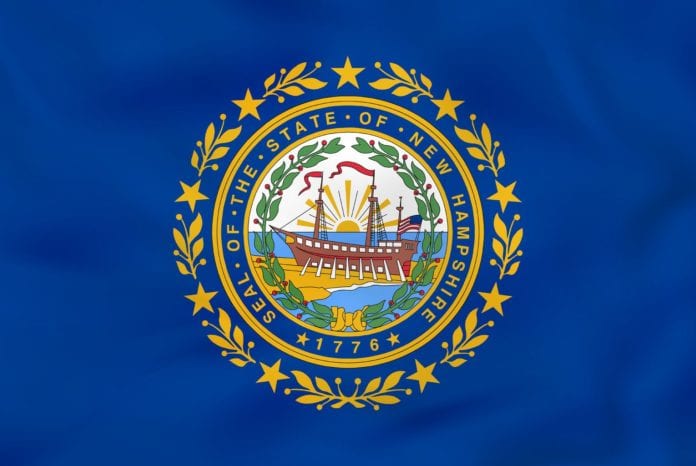Governor Sununu says the state will pursue build-out with Rivada Networks
New Hampshire has become the first state to opt out of AT&T’s nationwide build-out of a public safety LTE network for the First Responders Network Authority, as the Dec. 28th deadline approaches for all states to render a decision on opting in or out.
New Hampshire Governor Chris Sununu announced his decision Thursday, saying: “New Hampshire’s Statewide Interoperability Executive Committee determined from a technical standpoint that an opt-out of FirstNet is far and away our best option, as evidenced by their unanimous 15-0 vote. After reviewing the report from the FirstNet Opt-Out Review Committee, it is clear that while an opt-out decision comes with regulatory and financial risks, those risks can be mitigated through the safeguards and contractual provisions that the Committee has recommended. I am incredibly grateful to the members of the Opt-Out Review Committee for their assistance in our due diligence evaluation.”
Sununu went on to add that “Rivada has proposed a plan that has the potential to provide immense value to our state, including unparalleled public safety infrastructure investments that will lead to unmatched and near universal coverage for the new public safety network. If we successfully navigate the opt-out path, New Hampshire will retain a level of control that it would not have enjoyed in an opt-in scenario. I am pleased that we have the opportunity to pursue a plan that will provide the maximum benefit to our public safety community and all of our citizens. New Hampshire deserves nothing less.”
New Hampshire has long kept its options open on the FirstNet Radio Access Network build, and went so far as to sign an agreement with Rivada in late 2016 in which the state selected Rivada as its network build-out partner if New Hampshire ultimately ended up opting out. Rivada will have a carrier partner as it builds out New Hampshire’s RAN: U.S. Cellular. According to an announcement in the fall, U.S. Cellular will “provide its more than 30 years of experience in managing and constructing wireless networks to assist Rivada in the deployment of a state-of-the-art network for New Hampshire’s first responders. Excess capacity on that network will be offered for commercial use to support wireless users throughout the state of New Hampshire, including U.S. Cellular customers.”
“Rivada is honored to have the opportunity to build a world-class public-safety RAN for the Granite State,” said Declan Ganley, chairman and CEO of Rivada Networks. “New Hampshire ran the longest and most thorough opt-out review process in the country. Now the real work of transforming New Hampshire’s public-safety communications can begin. We also look forward to other states joining New Hampshire in building their own FirstNet RANs between now and December 28. Rivada and its partners are ready to work with FirstNet and the states to roll out state RANs in any state that opts to follow this bottom-up approach to emergency communications.”
FirstNet responded to the New Hampshire decision with a tweet saying, in part, that it “stands ready to work with New Hampshire upon successful completion of the opt-out process.”
FirstNet stands ready to work with New Hampshire upon successful completion of the opt-out process, to the benefit of public safety. Statement from @NHGOV on today’s state plan decision:
https://t.co/24jSOx3d7v— FirstNet Authority (@FirstNetGov) December 7, 2017
“To date, all other states and territories that have made a decision have chosen to opt in to FirstNet – reflecting a belief across the nation that it is the best option for the public safety community and the residents they serve,” said Chris Sambar, SVP-AT&T FirstNet, in a press statement. “Today, Gov. Sununu has expressed his decision to go down a path not chosen by any of the 35 states and territories before him. We remain hopeful New Hampshire will continue to assess the substantial risks associated with an opt-out proposal of an unproven vendor.”
The states of Ohio and Vermont are the most recent states to opt in to the FirstNet RAN build, bringing the total of opt-ins to 35 out of 56 states and territories — plus one opt-out. States including California, New York and Florida are among those which have not yet announced their decisions; governors have until Dec. 28th to do so. California FirstNet discussions were ongoing this week, according to a tweet from the executive director of the Los Angeles Regional Interoperable Communications System, Scott Edson.
Great CA FirstNet Board mtg this morning. Excited for State decision to opt in/out by December 28. Hopeful we can come to an agreement with AT&T to absorb LA-RICS to ensure public safety LTE services in the region for any emergency or disaster & assuming state opt in… #FirstNet pic.twitter.com/t92ngP44Nl
— Scott Edson (@LARICSexec) December 6, 2017
Image copyright: boldg / 123RF Stock Photo

